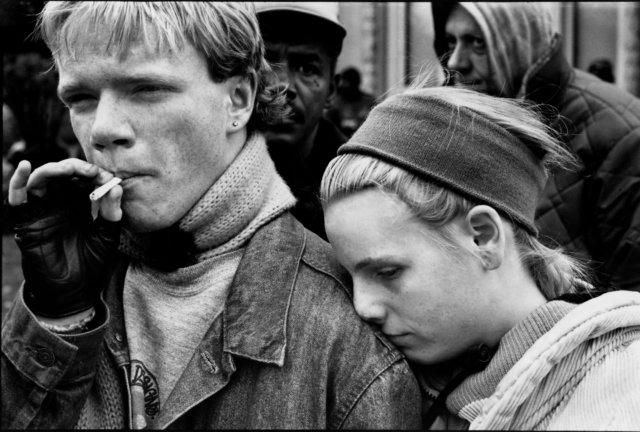
The sun was out, and I was getting my steps in by doing a couple of laps around our office building. Usually, I don’t see anyone on these little jaunts, but on this day I passed by a teen runaway.
I had no idea, though, because we really never have any idea what troubles strangers may be turning over in their minds as they sit at a stop light or stand in line at the grocery store. Or walk through a parking lot. And I would have never known had she not asked very meekly if she could possibly use my cell phone.
Oddly enough, I didn’t actually have my phone on me. As she dejectedly started to walk on, I decided to pry a little. “Who are you trying to reach?” I asked. I noticed she had a backpack. “Are you trying to get somewhere?”
“I want to call the police,” she answered. “I ran away and I’m ready to go home.”
She didn’t sob, but at that moment tears began to trickle down her cheeks — and the trickling did not stop.
So much trauma for such a young person
The young woman was not inclined to share too much, but as we headed to the NonDoc office for my phone, I had to ask a few more questions so I could figure out our next steps: What’s your name? Where are you from? How long have you been gone? Do you know if anyone has filed a missing person’s report?
I called the police department in the city from which she said she had run away. They had to transfer me to the Oklahoma City Police Department, because, as I learned, whichever city you are in becomes responsible for performing the “retrieval.”
Once the dispatcher said officers were on their way, I hung up and asked if the young woman would like me to sit with her while she waited outside. She said no. It felt really wrong to leave her there, but I wanted to respect her choice.
Minutes after I returned to my office, the police department called back with more questions, questions for which I certainly didn’t have answers. I went back outside to find her sitting on the curb, tears still slowly and steadily trickling down her cheeks. I handed her the phone so she could answer their questions. During the following conversation, I overheard some very sad details that were definitely none of my business.
I felt so sorry for this young woman, not only that she had to divulge so much personal trauma to complete strangers, but that, even before reaching adulthood, she had experienced more trauma than many of us will in a lifetime.
She returned the phone to me. Again I asked if she’d like some company. Again she declined.
Facts about teen runaways in America
In the United States, one in seven children over the age of 10 will run away at some point. According to the National Runaway Switchboard, there are about 1.3 million homeless youths on the streets on any given night.
There are many reasons a teen may leave home, including:
- out-of-home placement,
- abuse,
- mental illness,
- addiction,
- family problems
- and economic challenges.
Runaway teenagers are at higher risk for STDs, unplanned pregnancy, engaging in “survival sex” (i.e. trading sex for food, clothing and shelter), dropping out of school and a host of other problems that can compound the reasons they ran away in the first place.
Push back against the darkness
I don’t know what happened to the young woman I met, but I hope she is OK. I wanted very badly to tell her I love her (because I do) even though I didn’t know her, and I could tell that would be something she needed to hear from someone who didn’t expect anything in return.
Whether it’s spending a morning helping serve breakfast at the City Rescue Mission, donating to Teen Recovery Solutions, volunteering at the Boys & Girls Club or advocating for mental health funding, we can all find a way to push back against the darkness too many of our young people are facing.
They shouldn’t have to face it alone.





















